Venezuelans hold rival rallies as US-Russia standoff over military deployment continues
Supporters of Venezuelan President Nicolas Maduro and US-backed opposition figure Juan Guaido have staged rival rallies, as the ongoing power struggle in the Latin American country puts the United States on a collision course with Russia and China.
In a repeat of rallies seen over several previous weekends, pro-government protesters took to the streets in the capital Caracas on Saturday, voicing their anger at US meddling and "imperialism."
Holding Venezuelan flags and posters of Maduro, the protesters expressed support for the embattled president.
"We are calling for love. We are calling for peace," said Maduro's social movements chief, Jesus Camargo, adding "they are inciting people with hatred," in regard to the tactics employed by the opposition.
The protesters also chanted anti-American slogans, calling for national unity and vowing to defend the country against possible US invasion.
Meanwhile, an opposition rally was held by supporters of Guaido, the US-backed former head of the National Assembly who incited violent clashes in the country after proclaiming himself 'interim president' in January.
Speaking at one of the anti-government events, Guaido called on the armed forces to join the opposition.
Caracas has accused Washington of leading a coup, calling Guaido a US puppet. Washington and a number of its allies recognize Guaido as the president of the Latin American country.
In order to boost Guaido's attempts at toppling Maduro, the US has imposed new sanctions against Venezuela's national oil company while threatening military action against the country, which is in dire straits due to severe shortage of food, medicine and energy worsened by the political crisis in the country.
The US has also warned Russia, China and other supporters of Maduro on the Eastern Hemisphere to steer clear of Venezuela.
US National Security Adviser John Bolton made it clear on Friday that any troop deployment or aid deliveries by Russia and China to the crisis-stricken Venezuela would amount to a "direct threat" against the US. He said the Trump administration would not hesitate to defend its interests against such "provocative" moves.
Russia has in turn warned the US against interfering in the standoff between Venezuela’s government and the opposition.
Russian Foreign Ministry spokeswoman Maria Zakharova said on Saturday that the US was “nervous” about the situation in Venezuela because its plan to install a puppet regime had failed.
Earlier this week, US President Donald Trump said “Russia has to get out” of Venezuela and warned that “all options” were on the table to force Russia out of the region shortly after two Russian Air Force planes carrying nearly 100 military personnel landed outside Caracas.
Meanwhile, a Chinese plane loaded with 65 tons of medical aid landed in Caracas on Friday, a move that was expected to infuriate the administration in Washington, which has spared no efforts in forcing Maduro to step down through the imposition of tough sanctions on the oil-rich Latin American country.
Trump might call Russian, Chinese counterparts
In an offhand remark during a rally in Florida on Friday, Trump said he would parley with Russian President Vladimir Putin and Chinese President Xi Jinping.
However, Russian presidential spokesman Dmitry Peskov said Saturday that Moscow had not yet received any requests from Trump for talks with Putin.
"No, there have been no such requests [for a phone call with Putin from US representatives] yet," he told TASS news agency on Saturday.
Russia has dismissed the US allegations about its troops deployment to Venezuela, which it says is part of a military-technical cooperation agreement signed by the two countries in 2001.
Read more:
- Russia to keep forces in Venezuela ‘as long as needed’ despite US call for removal
- Venezuela puts S-300 air defense on operational readiness, satellite imagery shows
- Russia says opened helicopter pilot training center in Venezuela
- Trump trying to reverse 'pink tide' in Latin America: Analyst
Protesters in DC urge US, NATO to stay out of Venezuela
Meanwhile, a group of American protesters marched on Saturday in Washington, DC, urging the US and its allies in the NATO military alliance not to interfere in Venezuela and other Latin American countries.
NATO foreign affairs ministers are scheduled to meet in Washington DC on April 3 and 4 to mark the 70th anniversary of the alliance.
Trump has indicated that he is “very strongly” considering NATO membership for Brazil or some other formal alliance with the Latin American country, which borders Venezuela.

Analysts have pointed out that Washington's ultimate goal is to maintain and expand its military and economic control.
"The United States’ [officials] want to attain global hegemony, control or domination as much as they can of world affairs'" Lajos Szaszdi, political commentator, told Press TV in an interview, adding, " they are using this combination of sanctions and threats to achieve their purposes."
Regime change in Venezuela allows the US to gain greater control over the world energy market, particularly oil, the analyst added.
"The United States wants to control Venezuela’s oil in order to impose its dictate on the Organization of Petroleum Exporting Countries (OPEC)," Szaszdi said.
US wants another Syria
Isaac Bigio, an expert on Latin American affairs, said the American authorities were likely to escalate tensions in the region as they wanted “to have another Syria in Latin America.”
"The United States is trying to provoke an intervention and an armed uprising in Venezuela, organizing sabotage," the analyst told Press TV on Saturday. “We are going to have an escalation”..., but for the moment we are not going to have a war yet."
Bigio added that Venezuelans welcome help from ally countries Russia and China.
“Russia is well justified as a sovereign country to help, assist an ally that is Venezuela and it is not going to allow Venezuela to fall to US pressures and intervention,” he said, adding, “China said Latin America is not the backyard of anybody and it is not the property of anybody, and China could have relations with whoever it wanted, and that’s referring to Venezuela.”
Settlers served lavish lunch in Israeli prison holding fasting Palestinians
VIDEO | Press TV's news headlines
Hezbollah says won’t hesitate to take proper action against aggression
Iran to US: Sanctions and war failed; try diplomacy and respect
VIDEO | Afghanistan-Pakistan tensions rise after cross-border strikes
Israeli settlers set mosque ablaze in West Bank during Ramadan
Nouri al-Maliki vows not to withdraw bid for Iraq’s premiership
OIC calls emergency summit as Israel accelerates West Bank expansion





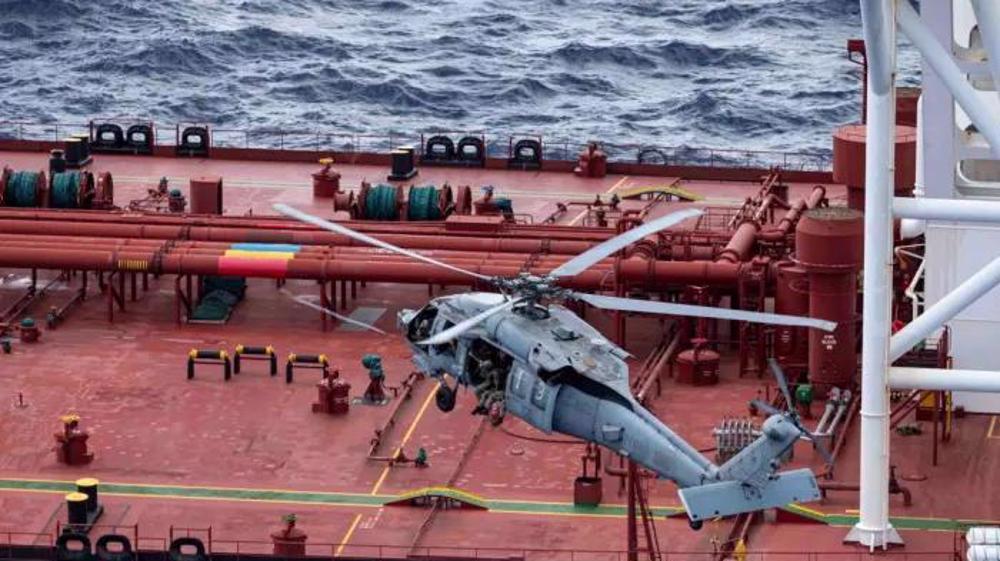
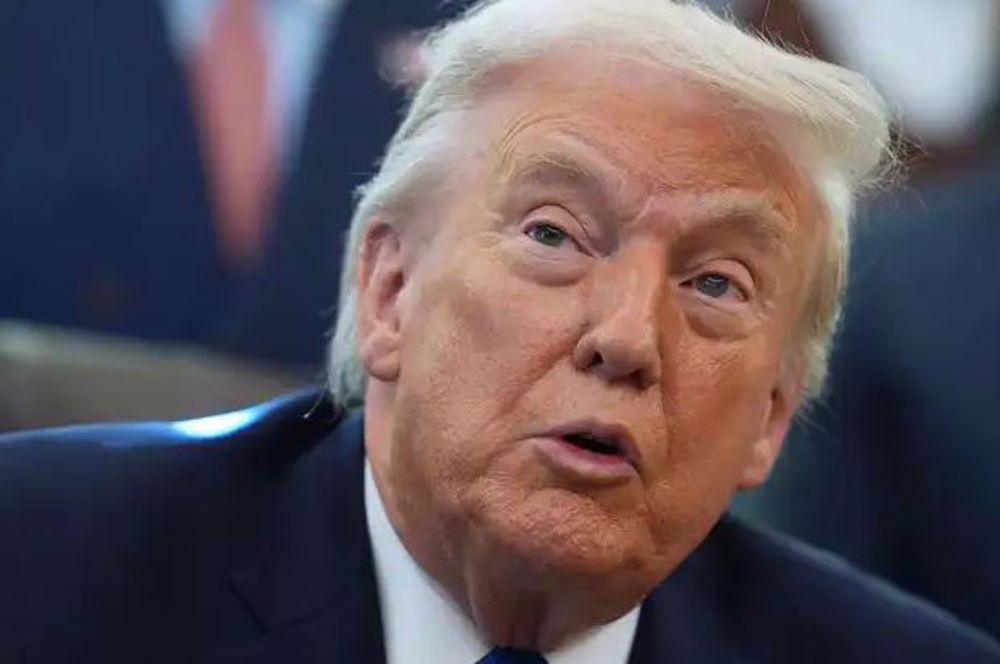
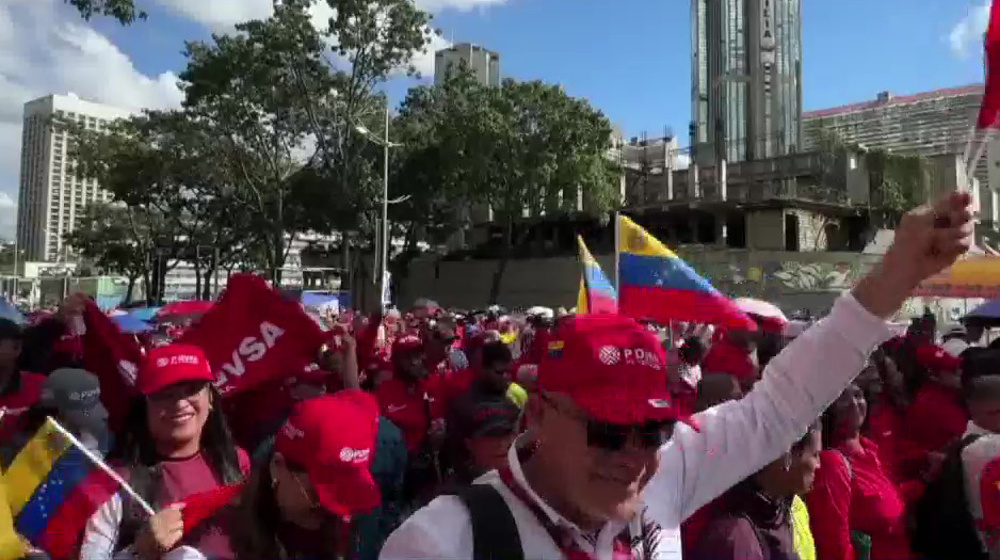




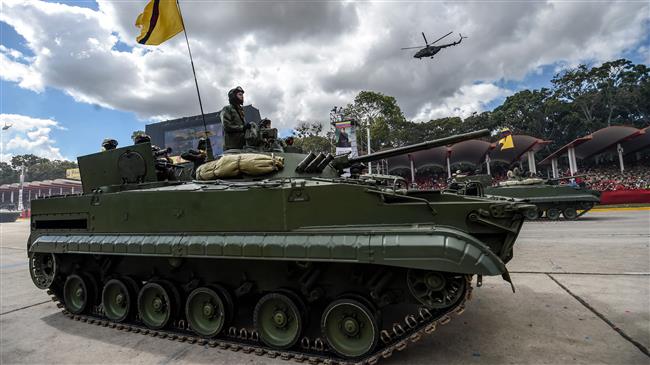
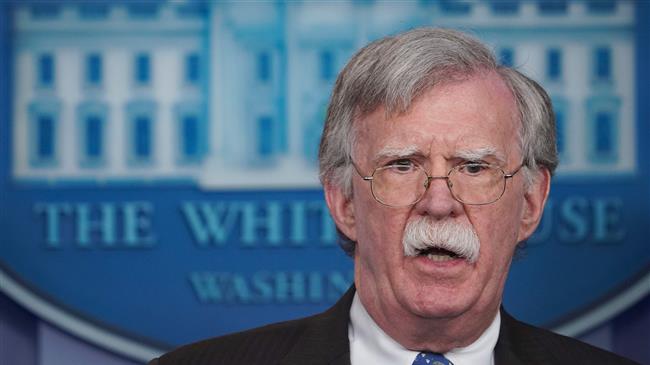
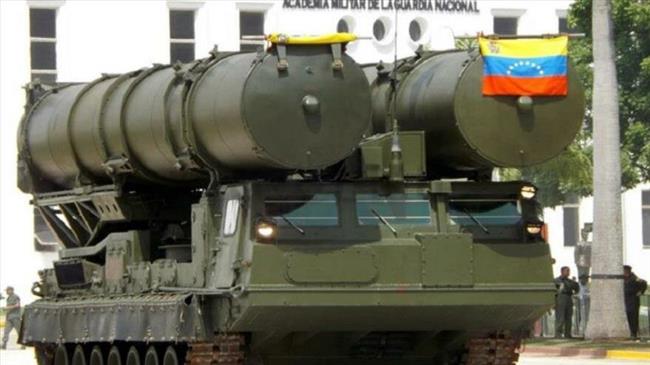
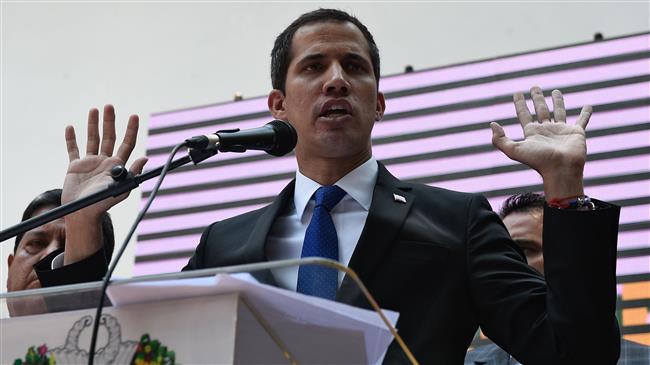

 This makes it easy to access the Press TV website
This makes it easy to access the Press TV website